- Clone
- HM36 (See other available formats)
- Regulatory Status
- RUO
- Other Names
- FAT, gpIIIb, gpIV
- Isotype
- Armenian Hamster IgG
- Ave. Rating
- Submit a Review
- Product Citations
- publications
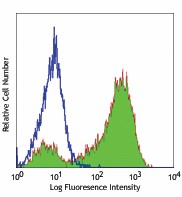
-

Thioglycolate-elicited BALB/c mouse peritoneal macrophages stained with HM36 Alexa Fluor® 488
| Cat # | Size | Price | Quantity Check Availability | Save | ||
|---|---|---|---|---|---|---|
| 102607 | 25 µg | 101 CHF | ||||
| 102608 | 100 µg | 229 CHF | ||||
CD36 is a 85 kD glycoprotein, also known as FAT, gpIIIb, or gpIV. It is a member of the class B scavenger receptor family, expressed on platelets, monocytes, macrophages, megakaryocytes, microvasculature, dendritic cells and mammary endothelial cells. The primary ligands for CD36 have been reported to be oxidized low density lipoprotein, anionic phospholipids, and collagens I, IV, and V. CD36 acts as a scavenger receptor thus promoting the removal of apoptotic neutrophils and other apoptotic bodies, as well as clearance of defective erythrocytes.
Product DetailsProduct Details
- Verified Reactivity
- Mouse
- Antibody Type
- Monoclonal
- Host Species
- Armenian Hamster
- Immunogen
- Full length version of the protein
- Formulation
- Phosphate-buffered solution, pH 7.2, containing 0.09% sodium azide.
- Preparation
- The antibody was purified by affinity chromatography and conjugated with Alexa Fluor® 488 under optimal conditions.
- Concentration
- 0.5 mg/ml
- Storage & Handling
- The antibody solution should be stored undiluted between 2°C and 8°C, and protected from prolonged exposure to light. Do not freeze.
- Application
-
FC - Quality tested
- Recommended Usage
-
Each lot of this antibody is quality control tested by immunofluorescent staining with flow cytometric analysis. For flow cytometric staining, the suggested use of this reagent is ≤ 0.25 µg per 106 cells in 100 µl volume. It is recommended that the reagent be titrated for optimal performance for each application.
* Alexa Fluor® 488 has a maximum emission of 519 nm when it is excited at 488 nm.
Alexa Fluor® and Pacific Blue™ are trademarks of Life Technologies Corporation.
View full statement regarding label licenses - Excitation Laser
-
Blue Laser (488 nm)
-
Application References
(PubMed link indicates BioLegend citation) -
- Hamilton R F, 2006. J. Biol. Chem. 281:34218.
- Stuart L M, 2007. J. Biol. Chem. doi:10.1074/jbc.M702887200.
- Hu Q, 2018. Nat Biomed Eng. 2(11): 831.
- Product Citations
-
- RRID
-
AB_528791 (BioLegend Cat. No. 102607)
AB_528791 (BioLegend Cat. No. 102608)
Antigen Details
- Structure
- Scavenger receptor superfamily, 85 kD
- Distribution
-
Platelets, monocytes, macrophages, microvascular and mammary endothelial cells
- Function
- Scavenger receptor, recognition and phagocytosis of apoptotic neutrophils, adhesion
- Ligand/Receptor
- Oxidized low density lipoprotein, anionic phospholipids, collagen I, IV, and V
- Cell Type
- Endothelial cells, Macrophages, Monocytes, Platelets
- Biology Area
- Immunology, Innate Immunity
- Molecular Family
- CD Molecules
- Antigen References
-
1. Barclay A, et al. 1997. The Leukocyte Antigen FactsBook Academic Press.
2. Greenwalt DE, et al. 1992. Blood 80:1105.
3. Endemann G, et al. 1993. J. Biol. Chem. 268:11811. - Gene ID
- 12491 View all products for this Gene ID
- UniProt
- View information about CD36 on UniProt.org
Other Formats
View All CD36 Reagents Request Custom Conjugation| Description | Clone | Applications |
|---|---|---|
| Purified anti-mouse CD36 | HM36 | FC |
| Biotin anti-mouse CD36 | HM36 | FC |
| PE anti-mouse CD36 | HM36 | FC |
| Alexa Fluor® 488 anti-mouse CD36 | HM36 | FC |
| Alexa Fluor® 647 anti-mouse CD36 | HM36 | FC |
| APC anti-mouse CD36 | HM36 | FC |
| PE/Cyanine7 anti-mouse CD36 | HM36 | FC |
| APC/Fire™ 750 anti-mouse CD36 | HM36 | FC |
| PerCP/Cyanine5.5 anti-mouse CD36 | HM36 | FC |
| TotalSeq™-A0555 anti-mouse CD36 | HM36 | PG |
| TotalSeq™-B0555 anti-mouse CD36 | HM36 | PG |
| TotalSeq™-C0555 anti-mouse CD36 | HM36 | PG |
Customers Also Purchased
Compare Data Across All Formats
This data display is provided for general comparisons between formats.
Your actual data may vary due to variations in samples, target cells, instruments and their settings, staining conditions, and other factors.
If you need assistance with selecting the best format contact our expert technical support team.
-
Purified anti-mouse CD36
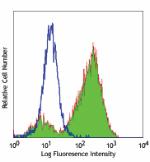
Thioglycolate-elicited BALB/c mouse peritoneal macrophages s... -
Biotin anti-mouse CD36
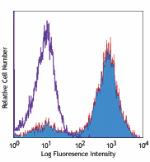
Thioglycolate-elicited BALB/c mouse peritoneal macrophages s... -
PE anti-mouse CD36
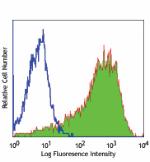
Thioglycolate-elicited BALB/c mouse peritoneal macrophages s... -
Alexa Fluor® 488 anti-mouse CD36
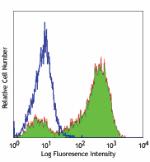
Thioglycolate-elicited BALB/c mouse peritoneal macrophages s... -
Alexa Fluor® 647 anti-mouse CD36
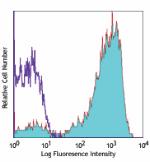
Thioglycolate-elicited BALB/c mouse peritoneal macrophages s... -
APC anti-mouse CD36
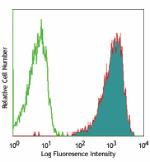
Thioglycollate-elicited BALB/c mouse peritoneal macrophages ... -
PE/Cyanine7 anti-mouse CD36
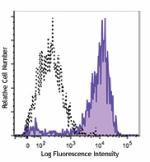
Thioglycolate-elicited BALB/c mouse peritoneal macrophages w... -
APC/Fire™ 750 anti-mouse CD36

Thioglycolate-elicited BALB/c mouse peritoneal macrophages w... -
PerCP/Cyanine5.5 anti-mouse CD36

Thioglycolate-elicited BALB/c mouse peritoneal macrophages w... -
TotalSeq™-A0555 anti-mouse CD36
-
TotalSeq™-B0555 anti-mouse CD36
-
TotalSeq™-C0555 anti-mouse CD36
 Login / Register
Login / Register 










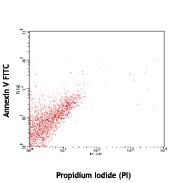
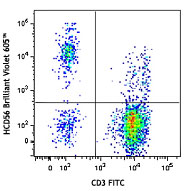
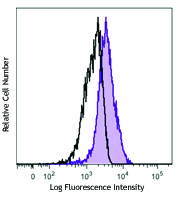
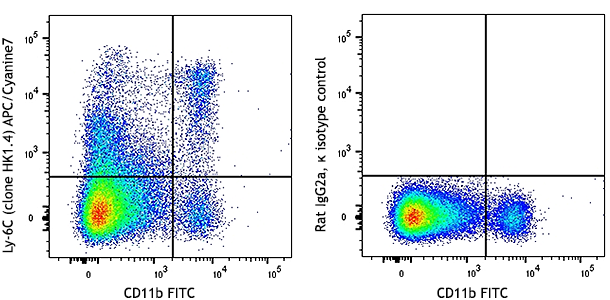



Follow Us